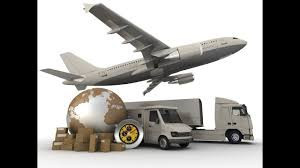views
The air cargo security and screening systems market is critical to global trade, ensuring the secure movement of goods across borders via air transport. With rising trade volumes, booming e-commerce, and increasingly complex supply chains, the demand for robust cargo screening and security solutions has never been higher. However, alongside these opportunities, the market faces several significant threats that could impede its growth, compromise security, and disrupt air cargo operations worldwide.
Understanding these threats is essential for stakeholders, including airport authorities, logistics providers, technology vendors, and governments, as they work to implement secure, efficient air cargo screening systems capable of addressing evolving global challenges.

Threat of Rising Global Terrorism and Smuggling Activities
One of the most pressing threats facing the air cargo security and screening systems market is the continuous evolution of terrorism tactics and smuggling operations. Cargo transported via air remains a potential target for:
-
Concealed explosives or weapons
-
Smuggling of illegal drugs and contraband
-
Movement of hazardous materials disguised as legitimate goods
-
Insider threats within airport and logistics operations
Terrorist organizations and organized crime groups are increasingly sophisticated, employing advanced concealment techniques to bypass conventional screening processes. This constant evolution forces security systems to adapt rapidly, placing immense pressure on technology providers and operators to stay ahead of potential threats.
A major incident, such as the smuggling of explosives via air cargo, could severely damage public trust, disrupt global trade, and lead to stricter regulatory measures, making this one of the market's most critical threats.
Cybersecurity Threats to Connected Screening Systems
As the air cargo security and screening systems market embraces digital transformation, including AI-powered platforms, automated lanes, and integrated data solutions, cybersecurity risks are becoming a significant concern.
Modern screening systems are increasingly connected to airport networks, logistics databases, and cloud platforms, making them potential targets for:
-
Cyberattacks aimed at disabling screening operations
-
Unauthorized access to sensitive cargo or passenger information
-
Data manipulation that compromises threat detection
-
Ransomware attacks disrupting entire logistics operations
A successful cyberattack on cargo screening infrastructure could have severe consequences, including operational delays, financial losses, reputational damage, and increased vulnerability to physical security threats. Stakeholders must prioritize robust cybersecurity frameworks as they adopt advanced screening technologies.
High Costs and Economic Uncertainty
While technological advancements offer improved security, the high cost of deploying and maintaining modern screening systems remains a threat to market growth, especially in developing regions. Economic challenges such as:
-
Budget constraints at airports and logistics hubs
-
Currency fluctuations impacting equipment affordability
-
Economic slowdowns reducing infrastructure investments
-
Unequal access to funding in emerging markets
These factors can slow the adoption of advanced screening technologies, leaving gaps in global cargo security. Smaller airports, particularly in developing regions, may struggle to comply with international screening mandates, creating weak points in the global air cargo network.
Regulatory Complexity and Market Fragmentation
The air cargo security and screening systems market is also threatened by regulatory fragmentation. While global organizations such as ICAO and TSA establish broad standards, enforcement and specific requirements vary significantly across regions.
Consequences of regulatory disparities include:
-
Increased operational complexity for multinational logistics providers
-
Delays in technology approvals and deployment
-
Difficulty standardizing screening systems across international hubs
-
Potential legal and compliance risks for operators
This fragmented regulatory landscape can slow technological innovation, reduce market efficiency, and create vulnerabilities that malicious actors may exploit.
Operational Disruptions and Supply Chain Vulnerabilities
Global supply chains have become increasingly interconnected, but this has also introduced operational risks that threaten cargo security efforts. These include:
-
Disruptions due to geopolitical conflicts or trade restrictions
-
Natural disasters affecting airport and logistics infrastructure
-
Labor shortages impacting screening operations
-
Health crises, such as pandemics, reducing workforce availability
Such disruptions can strain air cargo operations, reduce screening effectiveness, and limit the market's ability to maintain high-security standards consistently.
Addressing Market Threats: The Way Forward
To mitigate these threats and safeguard the air cargo security and screening systems market, stakeholders must focus on:
-
Continuous investment in advanced screening technologies
-
Strengthening cybersecurity infrastructure for connected systems
-
Enhancing global regulatory collaboration and standardization
-
Expanding funding and technical support for developing regions
-
Building resilience into air cargo operations through contingency planning
By proactively addressing these challenges, the market can maintain its role in securing global trade while supporting the efficient movement of goods across international borders.
Conclusion
The air cargo security and screening systems market plays a vital role in global commerce, but it faces significant threats ranging from terrorism and cyberattacks to regulatory fragmentation and operational disruptions. Addressing these challenges requires coordinated efforts among governments, technology providers, and logistics operators to develop resilient, innovative, and compliant screening solutions.
By strengthening defenses against these threats, the market can continue to evolve, ensuring the secure, efficient transport of goods that underpins the global economy.



Comments
0 comment